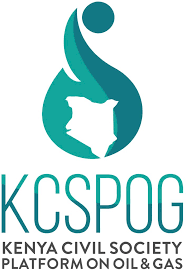Community Land Acquisition for Oil and Gas Projects
By Emmaqulate Moranga
“How does the government claim to own land passed down to us by our ancestors? Land where our ancestors are buried?” these questions dominated our dialogue with the community in Turkana County. The Community also raised concerns of displacement and reduction of grazing areas for their livestock.
The community’s concerns are reflected in the Community Land Act, which provides that all unregistered community land shall be held by the County Government, in trust for the community. Most community land in Turkana county is unregistered, and therefore vests in the County Government.
Needless to say, land is a passionate topic, and a necessary resource in upstream and midstream petroleum activities. Therefore, at some point, compulsory acquisition is necessary to allow for oil and gas projects.
Compulsory acquisition is power given to the government to convert private or community land into public land, for public use. It is allowed by the Constitution under these conditions:
- Compensation be just
- Compensation be prompt
- Compensation be in full
Compulsory acquisition becomes a challenge where the land in question is unregistered community land. This is because the process will have to be undertaken with the County Government, and any compensation paid to the County Government, to be released to the community only upon registration of the community land. There is no clarity on how the compensation is eventually channeled to the community.
Despite there being a community land Act to guide registration of community land, the Act is yet to be fully implemented.
Furthermore, compensation to occupants in good faith of land is required under the Constitution. However, just compensation is pegged on a valuation system, established under the Land Value (Amendment) Act, 2019, that neglects the cultural value of the land to pastoralist communities. Further conditions requiring the occupants to have been in occupation of the land for six uninterrupted years prior to the acquisition notice is detrimental to Turkana pastoralist communities who are nomads.
The interaction between communities, their land, and oil projects will persist into the unforeseeable future. To enhance communities’ land rights in the oil and gas sector, there is need to address the challenge of registration of community land, and review of the Land Value (Amendment) Act to incorporate other forms of value allocation to land, to accommodate lands which may not be necessarily commercial but have immense cultural value to the local communities.
A sustainable oil and gas sector must be right-based. It must take into account the rights of communities where the resource has been discovered, to avoid any conflicts, and ensure that these communities do not near disproportionate burdens of the sector’s development.
